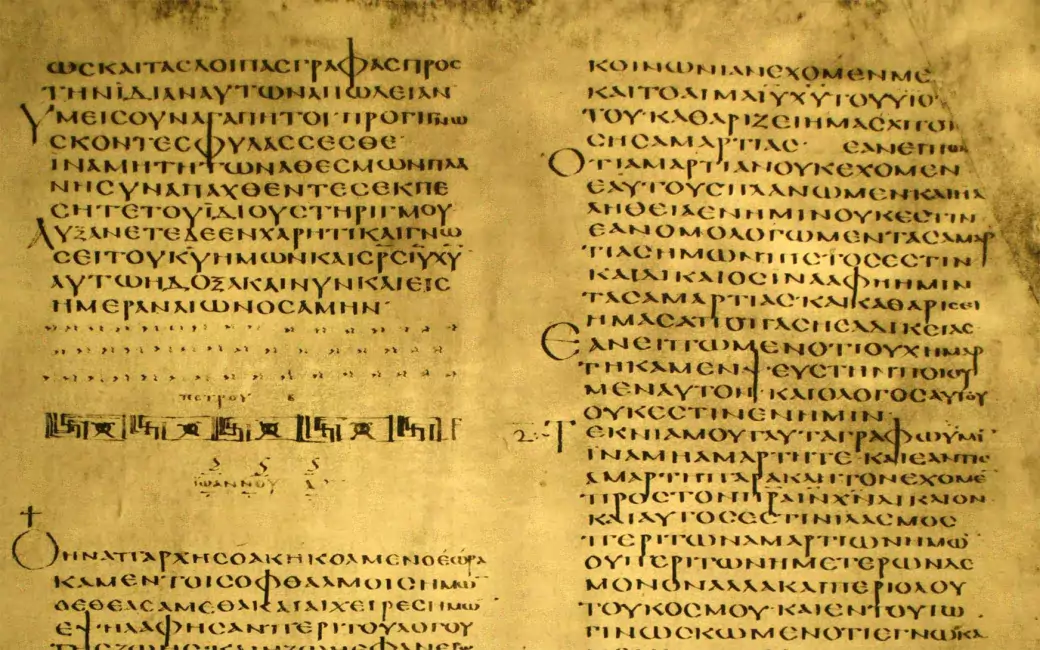Katja Kujanpää investigates how early Christian writers around 50-160 CE tried to articulate Christian identity. Her research can also be applied to the present day, as the Bible is the most cited book in general debates at the Finnish Parliament.

In their texts aimed at Christians, early Christian writers aimed to construct the identity of those belonging to the faith.
"The authors strove to describe what connects 'us', what our core values are, what sets us apart from others, how we should live and what we can expect from the future," Katja Kujanpää says.
Group identity is not only linked to values and ideals, but is also tangibly evidenced in everyday life, for example, as certain customs: which days of the week are special and what people eat.
Ancestral traditions and ancient origins as grounds for authority
"My particular research focus is on how Christian writers used authoritative writings as part of this identity-building process and what they thought as the basis for the influence and authority of these texts.The texts I study include writings that ended up in the New Testament, texts that did not, and also some written clearly at a later date," Kujanpää says. "The earliest material is represented by apostle Paul, who wrote in the 50s CE, while Justin Martyr (approximately 160 CE) is among the most recent Christian teachers represented."
Authority depends on the approval of readers
Kujanpää's research highlights the fact that authority is not a permanent feature of any text. Rather, it always depends on readers' approval. A text can directly or indirectly claim appreciation for itself, but it is up to the readers whether they accept such demands. For example, the Revelation to John implies that it is a vision from Christ (Book of Revelations 1:1-2).
"It's hard to imagine a more direct claim of authority. However, not all early Christians held the text in high esteem."
According to Kujanpää, authority often flows in both directions. Paul wished to justify his message with authoritative writings, borrowing their authority. In other words, quoting old texts boosts the authority of newer ones. At the same time, however, Paul demonstrated that the sacred writings of the Jews have profound significance and are alienable also to believers of pagan backgrounds. The writings speak of and to them. In this case, more recent texts strengthen the authority of older ones.
"This is also the case today when invoking the Bible. People citing the Bible suggest that it remains relevant, topical and authoritative in the making of important decisions."
Instead of there being a single early Christian model of textual authority, authors bring up a range of viewpoints. In certain texts, attention is focused on the divine spirit or the prophets as mediators of the divine message. In other writings, the focus is on the outcome instead of the process: God's own words recorded in writing.
"For example, Paul often quoted passages where God speaks directly in the first person. This way, God can pronounce promises directly to readers of the epistle, an impressive rhetorical device. The authors referred partly to different things depending on whether they addressed their message to Christians or non-Christians."
Researcher-developed models for investigating authority can be applied to the modern world
Katja Kujanpää develops concepts and models for examining textual authority, which can, to a degree, be applied to a range of texts in different contexts also in today's world.
The use of sacred or otherwise authoritative texts is also linked to questions of power and influence.
"For example, the Bible is the most widely cited book in general debates at the Finnish Parliament. Exposing the interconnections of power and interpretation in my data provides tools for critically examining the use, including in modern times, of sacred or otherwise authoritative writings."
According to Kujanpää, exploring the construction and expression of identities by means of social psychology also helps to understand the various identity-building processes of our time.
"Understanding the flexibility and plasticity of identities is important in our time, as it makes it easier to question oversimplified definitions of, say, being a Finn or a Christian, and to consider who and what affects our mental images and definitions."
Authority does not always mean unchangeability
It is common even for researchers to assume, without reflecting on the matter, that authority means unchangeability.
"This applies to a large extent to the present day and our way of thinking about printed text."
In antiquity, the phenomenon was considerably more complex. Some early Christian writers can refer to 'sacred writings' and invoke them in a way that suggests that they are, to the highest degree, authoritative and meaningful. And yet, they may in their citations seek stronger support for their arguments by editing the wording of these texts. In other words, the authority of a text does not automatically encompass the notion of the constancy of the wording.Moreover, , different writers may have had different views. There may also have been contradictions between ideals and practice.
Kujanpää considers the study of the Bible and early Christianity an important part of the study of the roots of Western culture.






